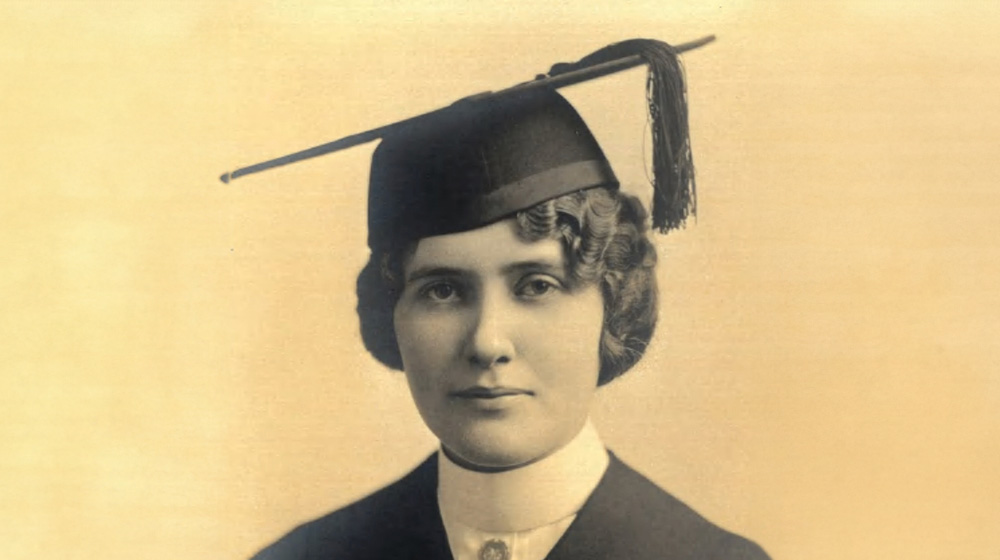‘A healthcare hero’

One of 11 children born to impoverished Norwegian immigrants, Helen Sundall moved to Chicago as a teenager to escape a bleak future on her family’s Wisconsin farm.
Bright and hardworking, she graduated in 1923 from nursing school and launched her career at the Chicago Municipal Tuberculosis Sanitarium—putting her life on the line to care for contagious patients with an often deadly lung disease.
“She was a healthcare hero,” says her granddaughter, Carol Sullivan, RN, who holds an MBA from the Quinlan School of Business. “She put herself at risk to help others and she knew what the consequences could be.”
Later married and adopting the last name of Goyer, the TB nurse’s family is honoring her legacy as a frontline healthcare provider with the establishment of the Helen (Sundall) Goyer RN Memorial Scholarship to support first-generation nursing students. The fund also marks the 100th anniversary of her graduation from the St. Anne’s School of Nursing, one of several hospital nursing schools that merged with Loyola University Chicago in 1935 to become the first collegiate nursing program in Illinois.
The scholarship was made possible thanks to Goyer’s late daughter and son-in-law, Mary Esther and George Baskys, who had no children but bequeathed an inheritance to their many nieces and nephews. A number of Goyer’s descendants have contributed to the fund, which the family sees as a tribute to her compassion and resiliency.
Several family members likened Goyer’s courageous decision to treat TB patients to the work of nurses nearly 100 years later in COVID wards.
Helen Goyer and her husband, Leo Goyer, a TB patient who lost a lung to the disease, paid a steep price for that choice: She eventually developed full-blown TB and spent two years in the sanitorium.
Her confinement splintered her young family, forcing the Goyers to send their five children—including one with Down syndrome who required full-time care—to live with relatives or in institutions for several years.
“It was tough,” says her daughter, Leona Rudolph, who recalled how the family stayed in contact through socially distanced outdoor picnics. She remembered her mother, who died in the 1980s, as someone who personified the best of nursing: “She was compassionate, patient, and understanding. We were so proud of her.”
The scholarship honors Goyer’s tenacity and grit as a first-generation student. It also recognizes Loyola’s impact on generations of the Goyer clan, several of whom attended the university.
“Loyola made a huge difference in my family’s trajectory,” says the Goyers’ grandson, Jim Rudolph, a Stritch School of Medicine graduate. He said Helen Goyer likely received financial assistance to attend nursing school, and her family wants to extend a helping hand to other aspiring nurses who lack the resources to attend college.
“We know what a difference obtaining an education and having a stable career can make to future generations,” he says. “That’s the motivation behind this scholarship—to augment someone’s journey.”
